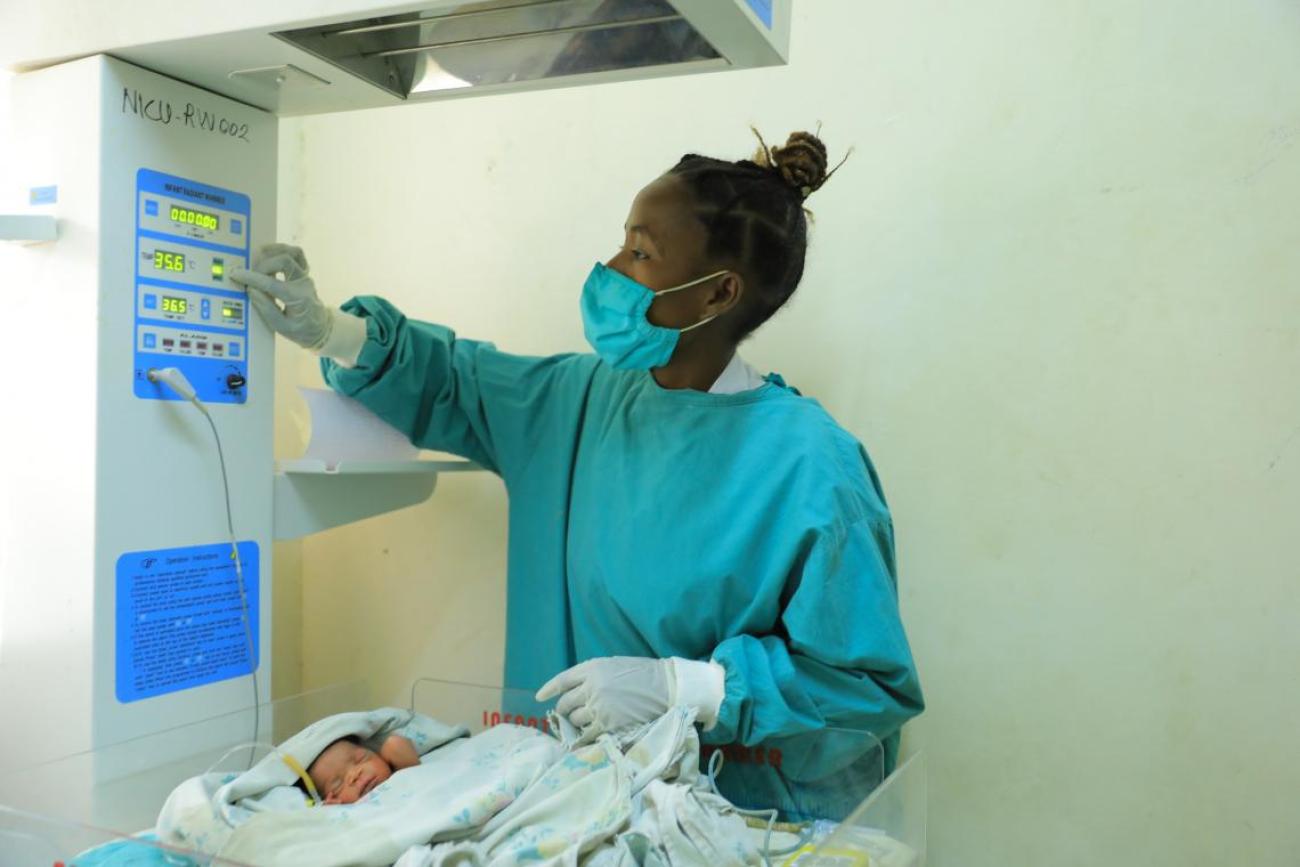Konso, SNNP, Ethiopia 2 June 2021 - Inside the Konso hospital’s neonatal intensive care unit, two-hour old Atalelech Washero lies under an incubator with an intravenous needle inserted in her tiny arm.
Weighing only 1.4 kilograms, she is tiny and fragile. The next few hours are critical for her survival and the little one is putting up quite a fight.
Atalelech was born prematurely at 7 months in the remote town of Segen. She was referred immediately to Konso Primary Hospital where there is an intensive care unit and health personnel trained to treat sick and small neonates.
“I didn’t expect my child to arrive this early,” says Ayelech Kusse, the mother.
“Immediately after I gave birth, my baby was not able to suckle. The doctors told me that she needed to stay warm. And then we were rushed with an ambulance right away to this hospital. I am glad that the health workers are taking good care of my baby. They also have a machine to keep her warm”.
“For the next few days, it is critical that we follow up on her temperature, pulse rate, blood oxygen saturation levels, and fluid intake. Since she was born prematurely, she is susceptible to infection,” adds nurse Genzebe Mengesha as she administers a maintenance fluid.
In the next room, Ayelech, 18, is anxiously waiting to hear about the progress of her baby while five other women breastfeed their newborn babies. One of them has twins.
Atalelech is stable but needs to stay warm in the incubator.
“I can’t wait to hold her in my arms,” says Ayelech.
Some 45 kilometres away in the mountainous village of Puypura, Kuya Abite cares for her five-week-old twin babies who were recently discharged from Konso hospital.
Kuya’s babies were born on Ethiopian Easter Sunday, bringing much joy to the family. She named them Fasika and Tinsae, two synonyms for Easter in Amharic, Ethiopia’s national language. Yet, the happiness was tempered when two days later, they both developed a fever.
“I was worried that my babies would not survive. They were weak and unable to breastfeed,” says Kuya. “I went to the health center, but they referred me back to the hospital where they were admitted. After two weeks, I came back home and now my babies are thriving.”
“Over the past 10 months, close to 600 neonates were admitted for critical care in our ICU,” says Dr Senbeto Shanko who works in the pediatrics department at Konso hospital. “Sadly, we lost 18 babies, more than half of whom were born with congenital abnormalities. Had it not been for the health care that we provide here, many more would have died.”
The beginning of life for newborn babies in rural Ethiopia is not easy. Pregnant women often are burdened with hefty responsibilities both at home and on the farms where they work. A poor diet during pregnancy often results in a low-birth-weight for the babies. During delivery, prolonged labour, infections and other complications put mothers’ and neonates’ lives at risk. Even after the baby is born, illnesses such as neonatal sepsis, pneumonia and diarrhoea remain major threats.
Ethiopia has made commendable strides in reducing under-five mortality by almost two thirds but neonatal mortality has not declined nearly as quickly. About 112,000 babies die every year within the first 28 days of their life in Ethiopia1. More than 80 per cent of these deaths are caused by three largely preventable and treatable conditions: complications due to prematurity, intrapartum-related deaths (including birth asphyxia), and neonatal infections2.
The stubbornly high neonatal mortality rate calls for an improvement in service delivery both at the community level and in health facilities. In 2016, a national newborn and child survival strategy was developed with UNICEF’s support. The strategy underlines a ‘continuum of care approach’ approach that links essential maternal, newborn and child health services throughout adolescence, pregnancy, childbirth, postnatal and newborn periods.
In Konso hospital where Atalelech, Fasika and Tinsae were born, UNICEF, with support from the Chinese government, is expanding and improving the quality of essential newborn care services. The support includes competency-based training of health workers and equipping rural hospitals with neonatal intensive care units.
“We know that improving the quality of care during pregnancy, childbirth, and the early neonatal period saves newborn babies,” says Dr Bizuhan Gelaw, UNICEF Health Specialist. “This requires proper training and mentoring of health workers, particularly midwives, and making available essential equipment and supplies.”
Ayelech hopes that one day her baby will grow up and become a doctor, fulfilling her childhood dream. That seems very far away, but for now, all she worries about is the survival of her baby who is yet to spend a day at home.



